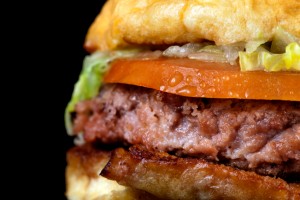Hemolytic Uremic Syndrome (HUS) is a life-threatening complication of E. coli infections that causes kidney failure, primarily in young children. Because March is Kidney Month, it’s a good time to learn the risks and symptoms of HUS.
 In the United States, HUS from E. coli infections is the most common cause of serious kidney injury in children and the most common cause of E. coli deaths. About 7, 500 cases are diagnosed each year. And most E. coli infections in children are caused by contaminated food or drinks.
In the United States, HUS from E. coli infections is the most common cause of serious kidney injury in children and the most common cause of E. coli deaths. About 7, 500 cases are diagnosed each year. And most E. coli infections in children are caused by contaminated food or drinks.
E. coli outbreaks have been linked to hamburger, mechanically tenderized steak, lettuce, spinach, sprouts, raw milk, raw cheese, unpasteurized apple cider, strawberries, hazelnuts, frozen pizza and other frozen food products and cookie dough. Symptoms of E.coli infection usually develop within a week of eating contaminated food and include abdominal cramping and diarrhea that can be watery or bloody.
If your child is experiencing these symptoms, see a doctor. It’s important to note that the Centers for Disease Control and Prevention (CDC) recommends that antibiotics should not be prescribed for E. coli infections. as they put patients at greater risk of developing HUS.
HUS causes damage and destruction of red blood cells. The damaged red blood cells clog the filtering system in the kidneys which may cause kidney failure. It can also cause seizure, stroke and coma.
Most children with HUS recover. But about 30 percent of them will experience long-term health effects including chronic kidney disease, hypertension (high blood pressure), and chronic neurological damage. Some of these children will need dialysis or even a kidney transplant in the future.
In many cases the child is one of many who were sickened in an outbreak. Past outbreaks have been caused by beef (ground, frozen hamburger patties and mechanically tenderized steak), lettuce, spinach, sprouts, raw (unpasteurized) milk and cheese made from this, unpasteurized apple cider, strawberries, hazelnuts, frozen pizza and other frozen food products and cookie dough. In some outbreaks, a restaurant is linked to the illnesses, but the food source is not found. When this happens, the restaurant is legally responsible for the harm done by the food it served.




